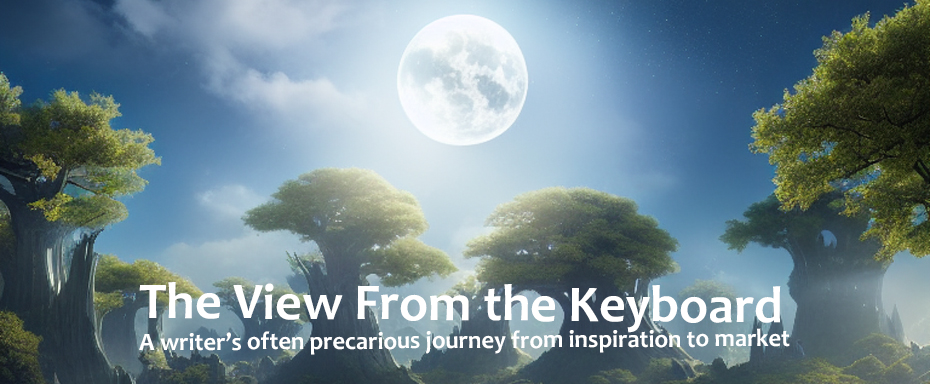This
post was first uploaded on Thursday 6th October, 2016. Archived
posts have been recovered following irretrievable login problems.
There used to be an axiom of “proper” science fiction, that unless the scientific content was pivotal to the story – i.e., the story would not work without it – it was not science fiction. It may have been the great John W. Campbell who said it, though I’m not sure. This yardstick says the literate SF writer – and by default reader – must be up on the science and theory of the day if they are to participate in a very special and singular genre.
Fast forward to today, and the SF writer is sometimes conscious of the need to “dumb it down” if he or she wants to sell stories. Twenty years ago, the Hollywood journalist covering shows of the mid-90s for the UK title Science Fiction and Fantasy Model Review, when discussing the second season of SeaQuest DSV, commented “I preferred this show when there was some science with the fiction,” and that really sums it up. The mantra of Hollywood has long been dumb it down, sex it up, and never mind reality. Has this invaded the hallowed halls of literary SF too?
It takes only a cursory pass through the literature of the present generation to realise hard science has made something of a withdrawal from the field – oh, it’s certainly there, but it’s perhaps the opiate of a minority, and a considerable part of the “SF” reading public is neither scientifically educated nor wants to be.
That’s a sweeping thing for any commentarist to say, but work through a current issue of Apex, Fantasy and Science Fiction, or Albedo One or a dozen others, and you will quickly spot a certain formula – which is also generally reflected in the up-front submission guidelines of many markets.
For instance, Asimov’s say: “In general, we're looking for "character oriented" stories, those in which the characters, rather than the science, provide the main focus for the reader's interest. […] A good overview would be to consider that all fiction is written to examine or illuminate some aspect of human existence, but that in science fiction the backdrop you work against is the size of the Universe.”
Far from the science being firmly in focus, to connect with the modern reader the first proviso is characterisation. Relationships and interactions take priority over stylistic devices and writing quality for the power to involve. In many a case one would be forgiven for seeing exactly what the old axiom actually forbade – a story which will operate perfectly well in any other setting, and for which a science fiction context is merely the exotica of background. Or, that strangeness and encounters with the unexplained – with no real attempt to explain them – have become more attractive, more easily digestible, to the general reader.
It’s not necessarily a bad thing, there are many terrific stories to be told which are a theme from other contexts transposed to science fiction. I don’t say this is a universal situation either, but when looking at the reading public in general one might think it. Technology is now omnipresent, there has perhaps been little that is genuinely cool about it in generations. Oh, we have gadgets, what is the modern kid without his super-mega-clever-fast-new phone? But how many of them could tell you how it works? Or care? Perhaps very few have ever really understood the workings of the devices of convenience around us, but it would seem Asimov’s “cult of anti-intellectualism” has taken a grip of iron and we are happy to accept the products of science while proudly eschewing its methods (to paraphrase Carl Sagan.)
If telling a story in which the science is obliged to be front and centre – a story which hinges upon a discovery and which can only be comprehended and dealt with in that context – one walks a fine line between the sort of narrative which catches a reader and a piece which “reads like a lecture.” If the story is dumbed down it loses its integrity as science fiction by the old definition, and may not even work at all. Does this mean the story should not be told? That is has become an idea badly suited to today’s market? If so, this is a dire commentary on a field which used to pride itself on its namesake. An old article discussing the shift from Golden Age adventure to serious, reflective speculation described it thus: “[there were] too many ‘rattling good stories’ being told and not enough thinking going on.” We seem to have come full circle and would far rather rattle than think.
Perhaps the most telling comment that can be made on this point is that a dedicated magazine now exists to fulfil the role for hard science and technology inside the now more widely-defined science fiction genre – Compelling Science Fiction, whose brief foregrounds these aspects as part of story structure. The genre seems capable of infinite subdivision, and its own origins and most sophisticated former selves have simply become facets of a more comprehensive whole. Whether this is a good or bad thing is perhaps, ultimately, irrelevant to all but academics studying the nature of the genre, as it is dictated by the market forces – which allow it to exist at all.


No comments:
Post a Comment